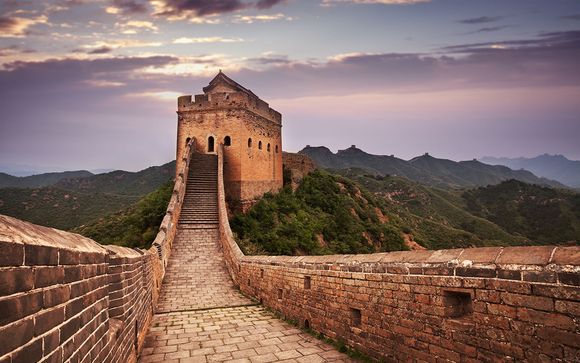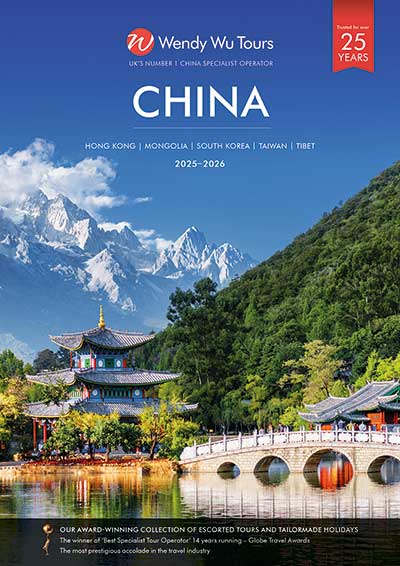20 Great Pieces Of Advice To Culinary Tours of China Best Cities
20 Great Pieces Of Advice To Culinary Tours of China Best Cities
Blog Article
Top 10 Tips On How To Deal With copyright Goods When You Shop In China
1. Be aware of the risky itemsTip : The most common counterfeited items include designer clothing, watches, bags electronic devices, as well as electronic gadgets. Shop for these items with extreme caution.
Pro: It helps you focus on the likely copyright products.
Con: Could cause suspicion about authentic products if there is no adequate knowledge.
2. Genuine product information can be obtained by conducting a search
Before making a purchase, become familiar with details such as the brand's logo, packaging, fabrics, and stitching the brand.
Pro: Increases your skill in spotting subtle variations between copyright products.
Cons: It may take a long time, particularly if you are unfamiliar with the product.
3. Shop in Trusted Stores
Tips: Choose authentic brands or reliable malls such as Beijing's China World Mall (or Shanghai's Plaza 66) for high-value products.
Pro: Guarantees that the item is authentic, and comes with warranties, receipts, etc.
Con: Products may be more expensive on the markets or in smaller stores.
4. Labels and tags must be examined
Pay attention to misspellings, inconsistent typefaces or inferior packaging materials and labels.
Pro: A quick way to identify poorly made counterfeits.
Contra: Counterfeits of high-quality could appear to be authentic which makes it harder to identify.
5. Beware "Too good to be true Prices"
Tip: Extremely low prices for luxury items are an indication of a problem. It is rare to find luxury items at prices below the retail value.
Pro: Stay clear of obvious frauds.
Con: Some vendors use moderate pricing to make counterfeits appear more convincing.
6. Demand Certificates to Authenticate the authenticity of
Tips: If you are buying antiques, jade or jade and also branded items, you should request authentic proof.
Pro: Adds an extra layer of protection for your purchase.
Pro: This method isn't able to be trusted because certificates can be faked too.
7. Do a test before buying
Request to test electronic devices and other high-end products prior to you purchase the items.
Pro: Helps confirm the quality and functionality.
Con: Sellers will not always permit testing. Testing may also be limited or superficial.
8. Find antiques that are expertly curated
Tips: To ensure that the antique is authentic the item must have been verified by a professional or undergo thorough investigation. Do not buy them until you are able to confirm their authenticity.
Pro: Lowers the chance of being scammed with copyright or fake.
Cons: You might overlook visually appealing, but not authentic decorative items.
9. Make use of a Local Guide that You Can Rely on
TIP: A guide from the region or a person who knows about the market will help identify authentic vendors and identify fakes.
Pro: Lowers the risk of shopping in unknown markets.
Con: Guides could require a tip or commission that can add to your expenses.
10. You must trust your instincts
Do not purchase anything if it feels unnatural regardless of the way in which the vendor conducts business or product quality.
Pro: Helps you prevent regretful shopping.
Cons: Being too cautious can cause you to miss out on good deals.
Pros of Avoiding copyright Goods
Durability: Genuine products are more durable and give more value.
Peace of Mind: There is no need to worry about being deceived or scammed.
Legal Safety: Certain nations penalize travelers if they bring back copyright products.
Supporting authentic products will help to maintain the ethical business practices.
Cons to Avoiding copyright Products
Genuine products can be more expensive.
The availability of genuine goods might not be available in street markets or smaller shops.
Missed Bargains: Some counterfeits are top-quality and offer great value for their price.
These suggestions can help you navigate the China shopping experience without fear. You'll be able to make informed choices about whether you're buying authentic goods or replicas. Have a look at the top learn why this spot is so famous for more advice including lion forest garden suzhou classical garden, snow beer the best selling beer in the world, lion forest garden suzhou classical garden, a wonderful landscape painting lijiang river, shopping in shangri la, eating in guiyang, the top 4 movies about kung fu and chinese culture, ganden temple, entertainment in beijing, anren ancient town and more.
Top 10 Tips For Visits To The Temples Of Fame During Seasonal Visits In China
1. Visit during Off-Season(Autumn/Winter).Tip. You should consider visiting Chinese temples that are famous when the weather is cooler (usually between November and February). It is the time when fewer visitors are visiting, and the weather is cooler.
Pro: Less crowded experience, which is more tranquil and serene.
Cons: The weather may be chilly than usual, which could make outdoor temple tours less enjoyable.
2. Be Prepared for Extreme Weather
Tips: Temperatures during different seasons can vary greatly. Winters can be brutally cold, while summer temperatures are usually scorching. Pack according to the weather forecast.
Pro: Be prepared for all weather conditions and enjoy your journey in peace.
Cons: It is difficult to pack to deal with extreme weather, particularly when you're traveling light.
3. Spring and Summer Visits for Vibrant Flora
Go to temples in spring and summer to view stunning gardens and flowers in bloom. You can also enjoy lush landscapes surrounding temples.
Visit the grounds of the temple to take in the breathtaking landscape.
Con: Summers can be very hot and busy particularly around national holidays.
4. Consider Festivals, Special Events, and Other Activities
Plan your travel around festivals such as the Mid-Autumn Festival or Chinese New Year. These festivals provide a range of rituals and ceremonies as well as an opportunity to be immersed in the temple's vibrant culture.
Pro Temples are awash with traditions and exciting occasions. They offer a unique experience.
Con: Temples may be extremely crowded during the festivals, and the price of lodging can rise.
5. Avoid the Peak Holiday Seasons
Avoid visiting during peak tourist seasons (e.g. Chinese New Year or Golden Week in October) as temples can be crowded both with international and local tourists.
Pro: Less crowded, more peaceful visits. A spiritual experience.
Con: You'll miss out some special festival activities in peak times.
6. Look for Temple Closures in Winter.
Make sure to check ahead of time. Certain temples, particularly in northern or remote areas are only open for a specific time or may be closed entirely in winter. Check ahead.
Cons: You don't waste time and can plan your other activities.
Con: Some temples might have reduced hours or completely closed during improvements, which could lead to disappointment.
7. Early Morning Visits in Summer
Be sure to arrive early in the day to avoid the heat of midday. A lot of temples are open at dawn. This is a tranquil time with less visitors.
The cooler temperatures and absence of crowds make for a more tranquil vacation.
Cons: A early wake-up time is required, which may not be suitable for everyone.
8. Be prepared for rain in the summer
It can rain heavily in the summer months, especially in the southern part of China. Take an umbrella and rain gear if you are traveling during this time.
Pro: Even in rain, you can still take in the beauty of the temple.
Cons: Rain can make outdoor activities difficult and can cause temple grounds to become slippery.
9. Visit the Mountain Temples in Autumn
TIP: Visit temples located in mountainous areas such as Mount Wutai (or Mount Emei), during autumn. The weather is pleasant and the autumn leaves make an incredible scene.
Pros The cooler temperatures allow hiking and outdoor exploration more comfortable. The views are spectacular.
Con: Temples that are popular in the mountains still draw crowds on holidays and weekends.
10. Make use of the Lunar Calendar to Plan Specific Events
TIP: A lot of temples in China use the lunar date calendar. Certain rituals and events are also tied to certain lunar dates. Search the calendar for important temple events like Buddha's birth as well as the Lantern Festival and other ceremonies.
Pros Unique cultural experiences and deeper understanding of local spiritual practices.
Con: It can take extra time to research and plan around the lunar calendar, and the timing of events might not coincide with your travel dates.
The Benefits of Visiting Chinese Temples in Season
There are fewer crowds. Off-season travel is an unhurried, peaceful experience.
Cultural Festivals: These events can provide greater understanding of local religions and cultures.
Beautiful Scenic Beauty. Spring or Autumn will provide stunning scenery. The lush gardens that surround temples can also be a good option.
Cooler Weather: Autumn and winter are the best times to go temple exploration.
Cons of Visits to Chinese Temples during the season
Unpredictable Weather: Winter can be cold and summer may be hot, which could impact your comfort.
Temple Closures: Some temples might be closed for a limited time or closed during off-seasons or during extreme weather conditions.
The Temple is prone to being crowded Celebrations and holidays that are well-known can draw large crowds. This could make difficult to enjoy the peaceful atmosphere in the temple.
Limited Events: If you're traveling outside of the time of the year, certain seasonal events may not be scheduled.
If you schedule your trip according to the time of year you will have an enjoyable and memorable trip. Understanding the seasonal dynamics can assist you in getting maximum enjoyment from your visit, regardless of whether you are looking for peace and quiet or celebrations. See the best read more about this travel destination for site recommendations including chinese kites a phoenix shaped kite, chinese festival cuisine, basha miao village, luoyang peony and wangcheng park, blue dragon temple, xiang cuisine.html, shanghais winter wonderland festivals lights and fun, a wonderful landscape painting lijiang river, shenzhen golf club, eating in shangri la and more.